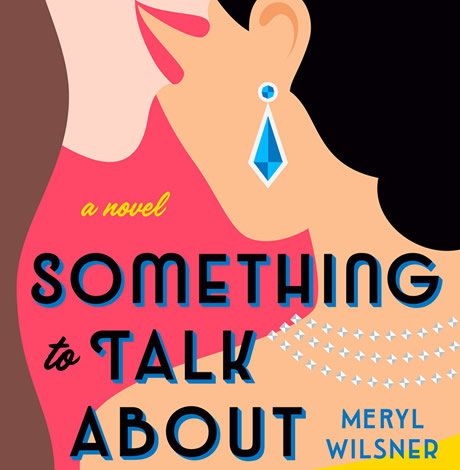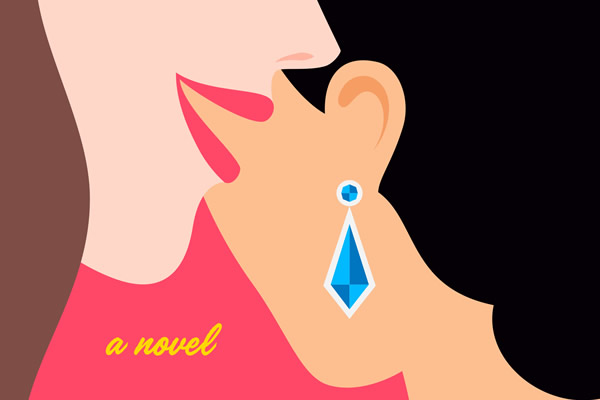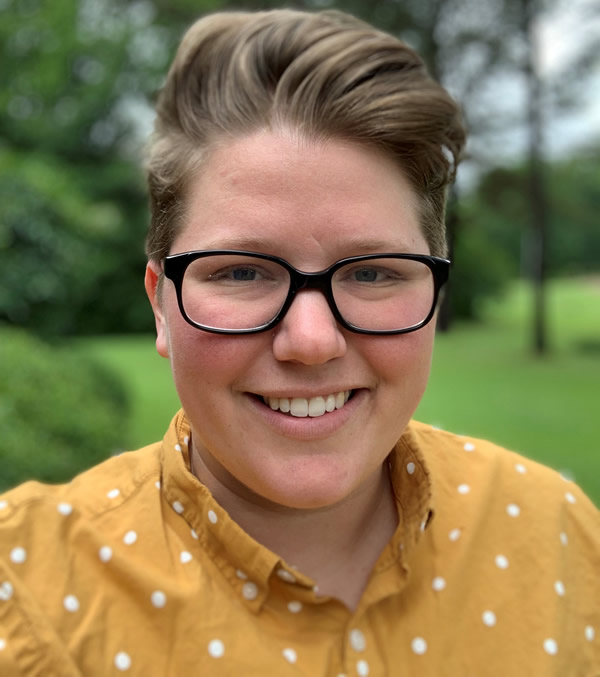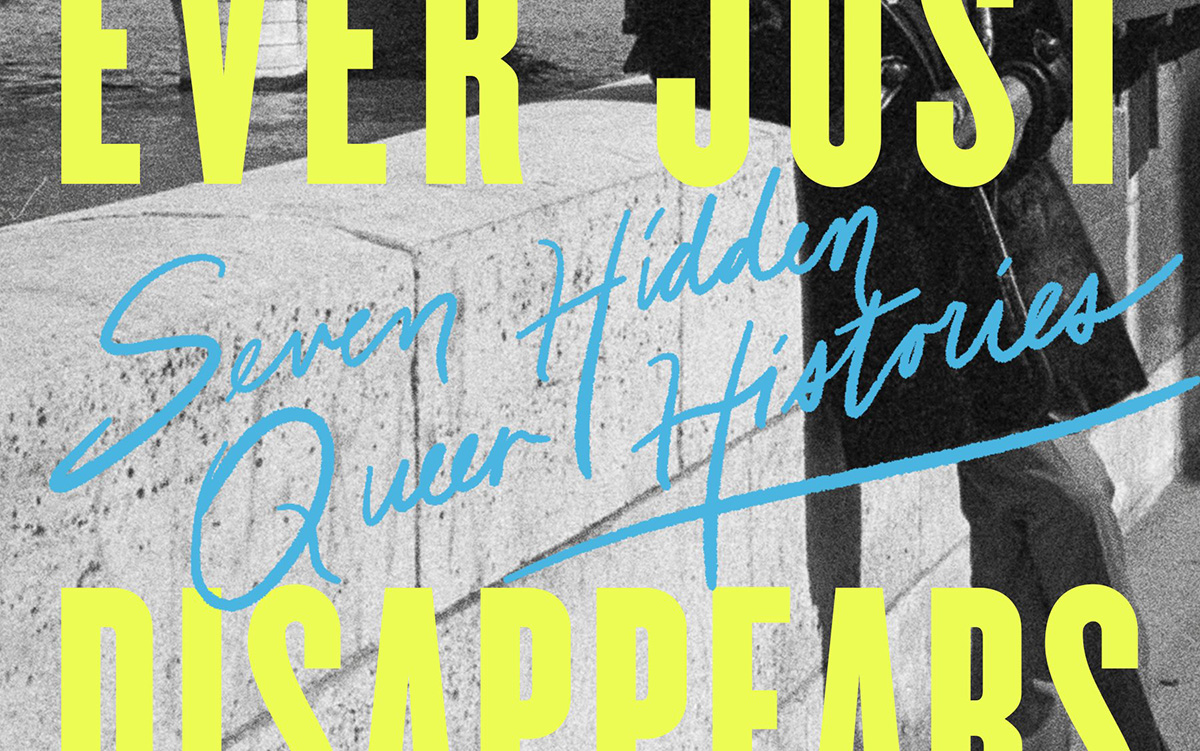Books
REVIEW: Debut novel ‘Something to Talk About’ is frothy lesbian Hollywood rom-com
Author Meryl Wilsner offers light, breezy read set in Tinseltown


‘Something to Talk About’
By Meryl Wilsner
Berkeley
May 26
$16
336 pages
You never know about love stories. When they’re good, you ravenously, even rapturously, turn the page. When they’re bad, you’re a kid on a car trip with your parents, whining, “Are we there yet?”
Thankfully, “Something to Talk About,” the debut novel by queer author Meryl Wilsner, takes you on an enthralling road trip. Wilsner’s tale of romance, featuring Hollywood, award shows, fashion and gossip, is an exhilarating ride.
“Something to Talk About” is the story of Jo Jones, a 42-year-old showrunner, and her 27-year-old assistant Emma Kaplan. Though, the novel is an entertaining rom-com, it deals with issues of our time — from racism to workplace sexual harassment.
Jo, who is Chinese-American and a (mostly) closeted lesbian, has been in show business since she was a teen. For seven seasons, beginning at age 13, she played Amanda, the adopted daughter of a white family on the TV show “The Johnson Dynasty.”
“Every other series regular was white. Jo never mentioned it. No one ever mentioned it,” Wilsner writes. “Jo had never known if people were ignoring it or simply didn’t notice.”
After the show ended, Jo stars in four blockbuster movies. Then she wrote about being Chinese-American in Hollywood.
“What it was like to be the butt or racist jokes on her own televison show. About casting notices for white actresses only,” Wilsner writes.
Work dries up for Jo for five years until she writes a script for a TV show. The network pats itself on the back for giving a second chance to a “disgraced actress” and Jo wins Emmys for the show.
Now Jo’s getting ready to be the executive producer of “Agent Silver,” an action movie franchise. But skeptics wonder: how could she, a Chinese-American woman, succeed at a genre traditionally helmed by white men?
Emma, who’s openly bisexual and Jewish, dropped out of film school because she lacked confidence. But she loves being Jo’s assistant. She’s got Jo’s back, from bringing her coffee with a smile to keeping her organized. Nothing about Jo’s mood or needs escapes Emma’s notice. She knows when to get Jo another latte and when it’s going to be a bad day because Jo’s ponytail is, as Wilsner writes, “high and tight enough to look severe.”
From her vantage point as Jo’s right-hand-woman, Emma learns about making movies. Jo mentors Emma and encourages her to go for it when she says she wants one day to direct.
It’s no spoiler to say that “Something to Talk About” is the story of a romance between Jo and Emma. Early on, you sense that they have feelings for each other. Emma goes with Jo to the SAG Awards. She isn’t Jo’s date. She’s there to help Jo handle the paparazzi on the red carpet. But, after they smile at each other, rumors that they’re an item flood social media.
Emma and Jo are freaked out about the gossip. At this point, they aren’t aware (or wouldn’t admit to themselves) of their attraction to each other. But they don’t want their careers to be tainted by rumors. Emma dreads having people erroneously think that she got her job by sleeping with her boss. Jo, who’s never discussed her love life with the press, doesn’t wish to be falsely accused of sexually harassing an employee.
“You think people don’t look at pictures of us and think I’m corrupting this lovely young lady? I’m a predatory lesbian in the middle of a midlife crisis,” Jo says.
The passion between Jo and Emma is so slow-burning that, at times, you want to stoke the flames. How many smiles, accidental kisses and iced chai lattes will it take before they get that they’re in love? When will Jo be fully out? But the romantic pay-off, though it seems to take forever to arrive, is worth the wait.
This romance will make you hungry, not only for love, but for food. Jo and Emma like to eat — everything from salmon with lemon butter sauce to pizza to latkes.
If you’re seeking romance that’s a perfect fit for these times, “Something to Talk About” is for you.

Books
New book offers observations on race, beauty, love
‘How to Live Free in a Dangerous World’ is a journey of discovery

‘How to Live Free in a Dangerous World: A Decolonial Memoir’
By Shayla Lawson
c.2024, Tiny Reparations Books
$29/320 pages
Do you really need three pairs of shoes?
The answer is probably yes: you can’t dance in hikers, you can’t shop in stilettos, you can’t hike in clogs. So what else do you overpack on this long-awaited trip? Extra shorts, extra tees, you can’t have enough things to wear. And in the new book “How to Live Free in a Dangerous World” by Shayla Lawson, you’ll need to bring your curiosity.

Minneapolis has always been one of their favorite cities, perhaps because Shayla Lawson was at one of Prince’s first concerts. They weren’t born yet; they were there in their mother’s womb and it was the first of many concerts.
In all their travels, Lawson has noticed that “being a Black American” has its benefits. People in other countries seem to hold Black Americans in higher esteem than do people in America. Still, there’s racism – for instance, their husband’s family celebrates Christmas in blackface.
Yes, Lawson was married to a Dutch man they met in Harlem. “Not Haarlem,” Lawson is quick to point out, and after the wedding, they became a housewife, learned the language of their husband, and fell in love with his grandmother. Alas, he cheated on them and the marriage didn’t last. He gave them a dog, which loved them more than the man ever did.
They’ve been to Spain, and saw a tagline in which a dark-skinned Earth Mother was created. Said Lawson, “I find it ironic, to be ordained a deity when it’s been a … journey to be treated like a person.”
They’ve fallen in love with “middle-American drag: it’s the glitteriest because our mothers are the prettiest.” They changed their pronouns after a struggle “to define my identity,” pointing out that in many languages, pronouns are “genderless.” They looked upon Frida Kahlo in Mexico, and thought about their own disability. And they wish you a good trip, wherever you’re going.
“No matter where you are,” says Lawson, “may you always be certain who you are. And when you are, get everything you deserve.”
Crack open the front cover of “How to Live Free in a Dangerous World” and you might wonder what the heck you just got yourself into. The first chapter is artsy, painted with watercolors, and difficult to peg. Stick around, though. It gets better.
Past that opening, author Shayna Lawson takes readers on a not-so-little trip, both world-wide and with observant eyes – although it seems, at times, that the former is secondary to that which Lawson sees. Readers won’t mind that so much; the observations on race, beauty, love, the attitudes of others toward America, and finding one’s best life are really what takes the wheel in this memoir anyhow. Reading this book, therefore, is not so much a vacation as it is a journey of discovery and joy.
Just be willing to keep reading, that’s all you need to know to get the most out of this book. Stick around and “How to Live Free in a Dangerous World” is what to pack.
The Blade may receive commissions from qualifying purchases made via this post.
Books
Story of paralysis and survival features queer characters
‘Unswerving: A Novel’ opens your eyes and makes you think

‘Unswerving: A Novel’
By Barbara Ridley
c.2024, University of Wisconsin Press
$19.95 / 227 pages
It happened in a heartbeat.
A split-second, a half a breath, that’s all it took. It was so quick, so sharp-edged that you can almost draw a line between before and after, between then and now. Will anything ever be the same again? Perhaps, but maybe not. As in the new book “Unswerving” by Barbara Ridley, things change, and so might you.

She could remember lines, hypnotizing yellow ones spaced on a road, and her partner, Les, asleep in the seat beside her. It was all so hazy. Everything Tave Greenwich could recall before she woke up in a hospital bed felt like a dream.
It was as though she’d lost a month of her life.
“Life,” if you even wanted to call it that, which she didn’t. Tave’s hands resembled claws bent at the wrist. Before the accident, she was a talented softball catcher but now she could barely get her arms to raise above her shoulders. She could hear her stomach gurgle, but she couldn’t feel it. Paralyzed from the chest down, Tave had to have help with even the most basic care.
She was told that she could learn some skills again, if she worked hard. She was told that she’d leave rehab some day soon. What nobody told her was how Les, Leslie, her partner, girlfriend, love, was doing after the accident.
Physical therapist Beth Farringdon was reminded time and again not to get over-involved with her patients, but she saw something in Tave that she couldn’t ignore. Beth was on the board of directors of a group that sponsored sporting events for disabled athletes; she knew people who could serve as role models for Tave, and she knew that all this could ease Tave’s adjustment into her new life. It was probably not entirely in her job description, but Beth couldn’t stop thinking of ways to help Tave who, at 23, was practically a baby.
She could, for instance, take Tave on outings or help find Les – even though it made Beth’s own girlfriend, Katy, jealous.
So, here’s a little something to know before you start reading “Unswerving”: author Barbara Ridley is a former nurse-practitioner who used to care for patients with spinal cord injuries. That should give readers a comfortable sense of satisfaction, knowing that her experiences give this novel an authenticity that feels right and rings true, no faking.
But that’s not the only appeal of this book: while there are a few minor things that might have readers shaking their heads (HIPAA, anyone?), Ridley’s characters are mostly lifelike and mostly likable. Even the nasties are well done and the mysterious character that’s there-not-there boosts the appeal. Put everyone together, twist a little bit to the left, give them some plotlines that can’t ruined by early guessing, and you’ve got a quick-read novel that you can enjoy and feel good about sharing.
And share you will because this is a book that may also open a few eyes and make readers think. Start “Unswerving” and you’ll (heart) it.
The Blade may receive commissions from qualifying purchases made via this post.
Books
Examining importance of queer places in history of arts and culture
‘Nothing Ever Just Disappears’ shines with grace and lyrical prose

‘Nothing Ever Just Disappears: Seven Hidden Queer Histories’
By Diarmuid Hester
c.2024, Pegasus Books
$29.95/358 pages
Go to your spot.
Where that is comes to mind immediately: a palatial home with soaring windows, or a humble cabin in a glen, a ramshackle treehouse, a window seat, a coffeehouse table, or just a bed with a special blanket. It’s the place where your mind unspools and creativity surges, where you relax, process, and think. It’s the spot where, as in the new book “Nothing Ever Just Disappears” by Diarmuid Hester, you belong.

Clinging “to a spit of land on the south-east coast of England” is Prospect Cottage, where artist and filmmaker Derek Jarman lived until he died of AIDS in 1994. It’s a simple four-room place, but it was important to him. Not long ago, Hester visited Prospect Cottage to “examine the importance of queer places in the history of arts and culture.”
So many “queer spaces” are disappearing. Still, we can talk about those that aren’t.
In his classic book, “Maurice,” writer E.M. Forster imagined the lives of two men who loved one another but could never be together, and their romantic meeting near a second-floor window. The novel, when finished, “proved too radical even for Forster himself.” He didn’t “allow” its publication until after he was dead.
“Patriarchal power,” says Hester, largely controlled who was able to occupy certain spots in London at the turn of the last century. Still, “queer suffragettes” there managed to leave their mark: women like Vera Holme, chauffeur to suffragette leader Emmeline Pankhurst; writer Virginia Woolf; newspaperwoman Edith Craig, and others who “made enormous contributions to the cause.”
Josephine Baker grew up in poverty, learning to dance to keep warm, but she had Paris, the city that “made her into a star.” Artist and “transgender icon” Claude Cahun loved Jersey, the place where she worked to “show just how much gender is masquerade.” Writer James Baldwin felt most at home in a small town in France. B-filmmaker Jack Smith embraced New York – and vice versa. And on a personal journey, Hester mourns his friend, artist Kevin Killian, who lived and died in his beloved San Francisco.
Juxtaposing place and person, “Nothing Ever Just Disappears” features an interesting way of presenting the idea that both are intertwined deeper than it may seem at first glance. The point is made with grace and lyrical prose, in a storyteller’s manner that offers back story and history as author Diarmuid Hester bemoans the loss of “queer spaces.” This is really a lovely, meaningful book – though readers may argue the points made as they pass through the places included here. Landscapes change with history all the time; don’t modern “queer spaces” count?
That’s a fair question to ask, one that could bring these “hidden” histories full-circle: We often preserve important monuments from history. In memorializing the actions of the queer artists who’ve worked for the future, the places that inspired them are worth enshrining, too.
Reading this book may be the most relaxing, soothing thing you’ll do this month. Try “Nothing Ever Just Disappears” because it really hits the spot.
The Blade may receive commissions from qualifying purchases made via this post.
-

 State Department3 days ago
State Department3 days agoState Department releases annual human rights report
-

 Maryland5 days ago
Maryland5 days agoJoe Vogel campaign holds ‘Big Gay Canvass Kickoff’
-

 Politics4 days ago
Politics4 days agoSmithsonian staff concerned about future of LGBTQ programming amid GOP scrutiny
-

 District of Columbia23 hours ago
District of Columbia23 hours agoCatching up with the asexuals and aromantics of D.C.




